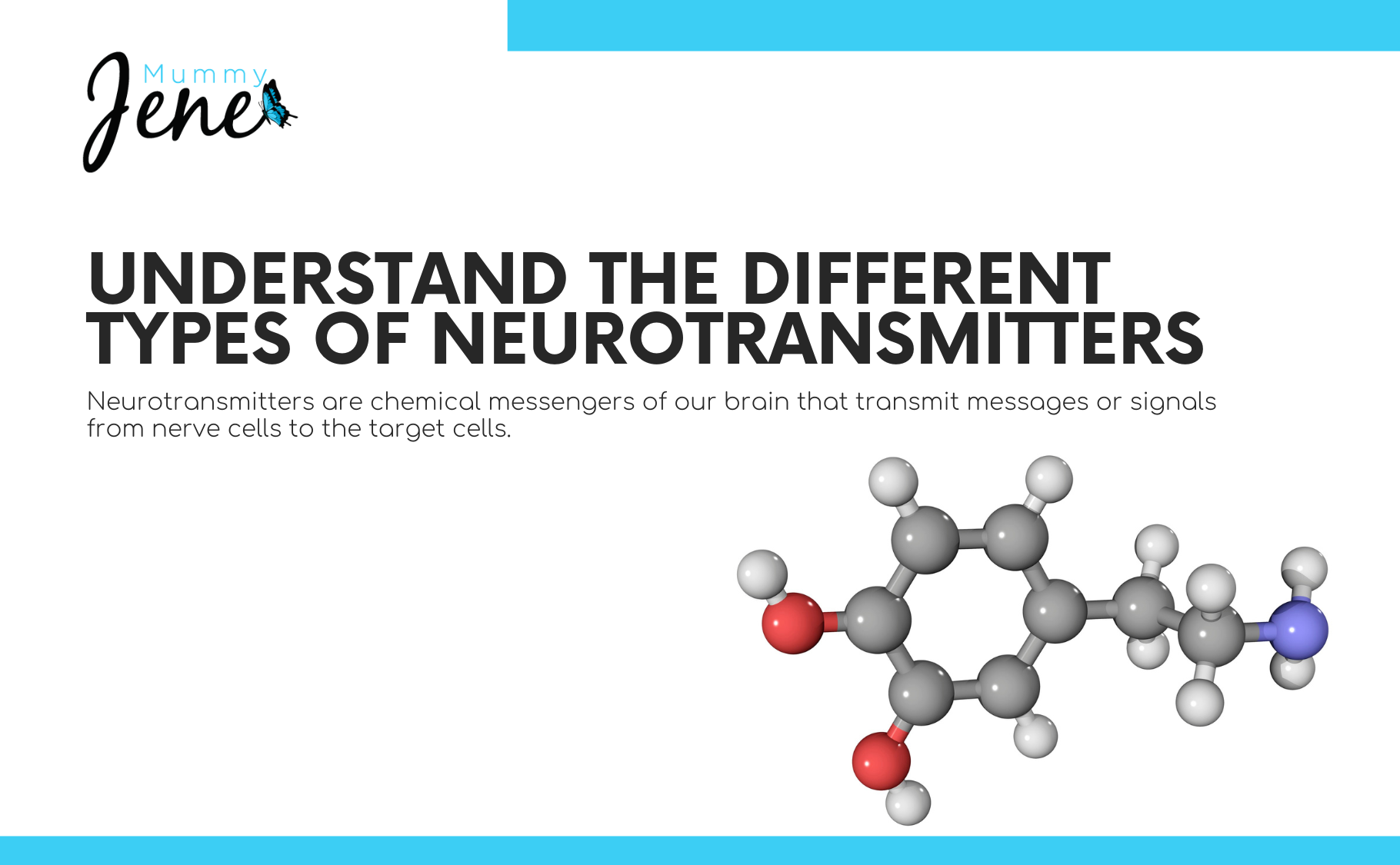Neurotransmitters are chemical messengers of our brain that transmit messages or signals from nerve cells to the target cells. This article will help us understand the functions and the different types of neurotransmitters. As the chemical messengers in our body, the job of neurotransmitters is to transmit signals to other nerve cells, muscle, and organ cells. The nervous system controls the psychological functions and physical functions in our body. The neurotransmitters are vital for this process of regulating bodily functions.
Types Of Action Of Neurotransmitters
- Excitatory – after receiving the signal from a neurotransmitter, the target is encouraged to take action.
- Inhibitory – this is the relaxation-like effect after receiving the signal.
- Modulatory – in action l, the neurotransmitter can simultaneously communicate to other neurons and send signals to many neurons.
Types of Neurotransmitters
- Dopamine – It is also known as the pleasure or reward neurotransmitter. This neurotransmitter is vital for movement coordination, behavior, memory, and learning. Our brain releases dopamine when doing activities that give us joy and satisfaction. A lack of dopamine can lead to Parkinson’s disease.
- Acetylcholine – It acts as an excitatory neurotransmitter. It plays a crucial role in our brain function and memory. This neurotransmitter is also responsible for muscle contraction and controlling the heartbeat.
- Endorphins – act as the body’s natural pain reliever because it prohibits pain signals. It is responsible for a euphoric feeling as it is released during laughter.
- Epinephrine -when we sense danger, we feel scaredb and our body immediately takes action to protect or run away from that danger. This fight or flight response is because of the epinephrine Neurotransmitters. Other than a neurotransmitter, epinephrine is also considered a hormone. It is released whenever we feel fear which causes our heart rate to increase and gives energy to our muscles. It is when our brain makes a quick decision either to fight or flight.
- Serotonin – is the inhibitory neurotransmitter that regulates our body’s circadian rhythm.
- GABA – is also an inhibitory neurotransmitter and acts as a mode modulator that calms anxiety and depression.
Every function of our organs is made possible because of these neurotransmitters. Our breathing, sleep cycles, digestion, appetite, and muscle movement are enabled to execute their role because of the signals sent by neurotransmitters. It is advised to have a healthy lifestyle and the right supplement to those with an imbalance in neurotransmitters.








